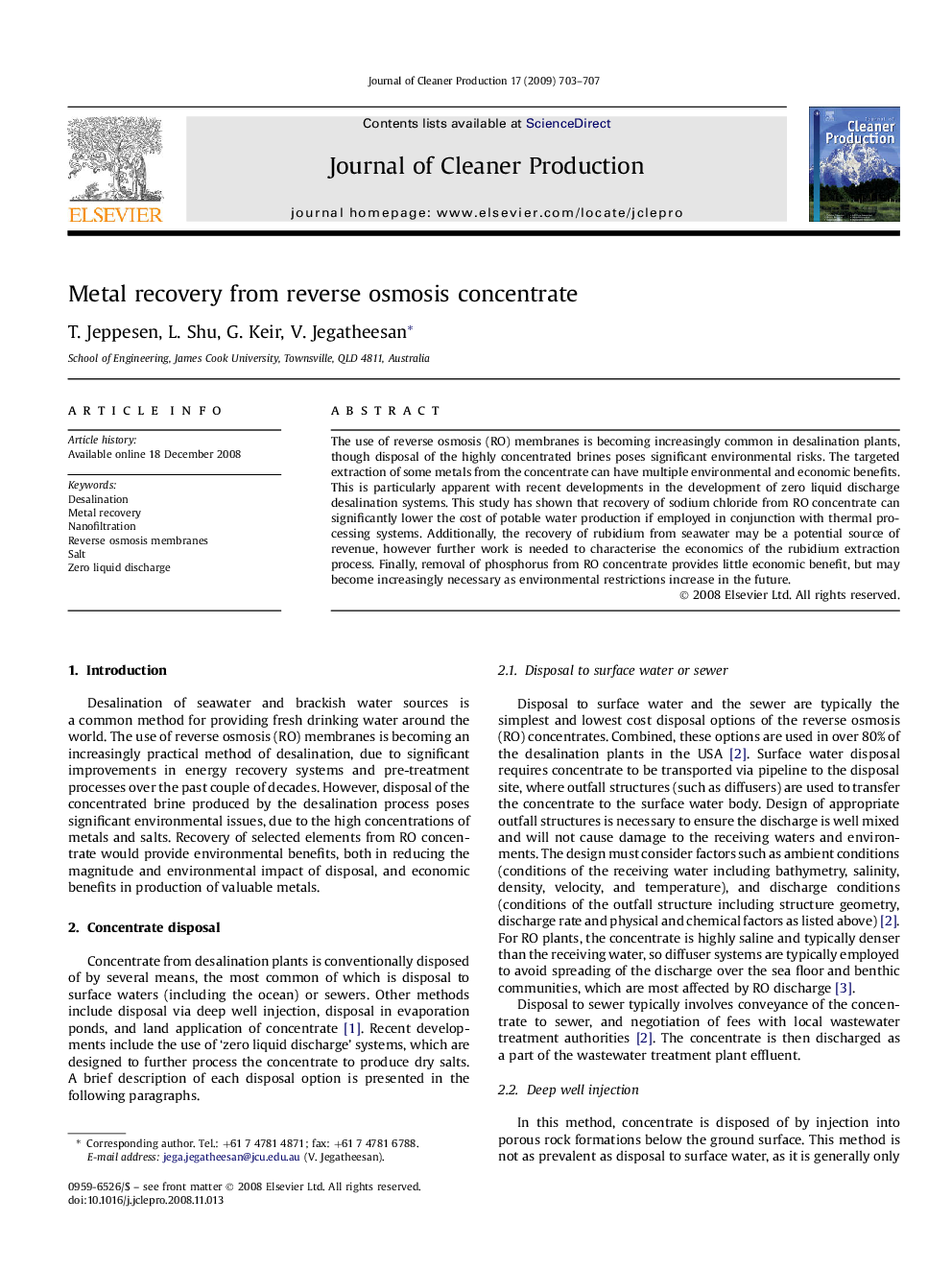| Article ID | Journal | Published Year | Pages | File Type |
|---|---|---|---|---|
| 1746682 | Journal of Cleaner Production | 2009 | 5 Pages |
The use of reverse osmosis (RO) membranes is becoming increasingly common in desalination plants, though disposal of the highly concentrated brines poses significant environmental risks. The targeted extraction of some metals from the concentrate can have multiple environmental and economic benefits. This is particularly apparent with recent developments in the development of zero liquid discharge desalination systems. This study has shown that recovery of sodium chloride from RO concentrate can significantly lower the cost of potable water production if employed in conjunction with thermal processing systems. Additionally, the recovery of rubidium from seawater may be a potential source of revenue, however further work is needed to characterise the economics of the rubidium extraction process. Finally, removal of phosphorus from RO concentrate provides little economic benefit, but may become increasingly necessary as environmental restrictions increase in the future.
